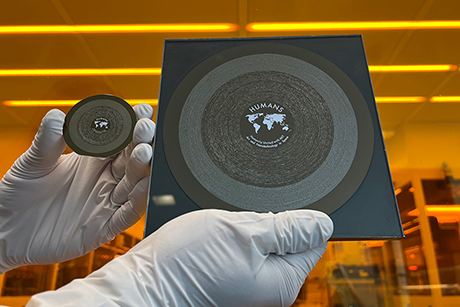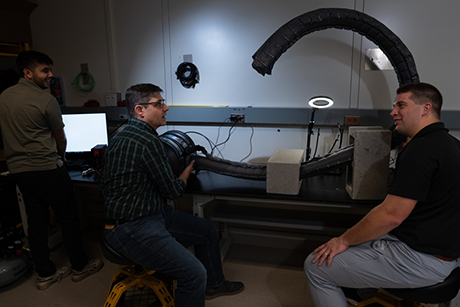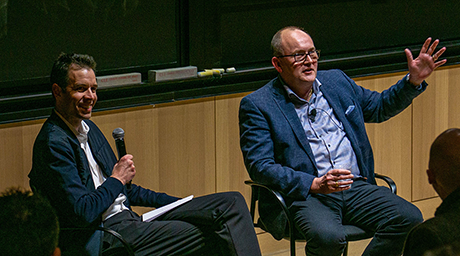Two from MIT honored at World Technology Awards
Leonardo DiCaprio began 2016 by capturing his long-awaited Academy Award for Best Actor, but his year ended in defeat, thanks to MIT graduate student Maher Damak.
Damak, a PhD candidate in the Department of Mechanical Engineering and a fellow in the MIT Tata Center, was named the winner of the Environment category at the World Technology Awards on Dec. 8 in Los Angeles. DiCaprio, a finalist in the same category for his work with the Leonardo DiCaprio Foundation, had to settle for runner-up.
The annual awards, hosted by the World Technology Network (WTN), honor “outstanding innovators from each sector within the technology arena” whose work has “long-term significance in the fields of science and technology,” according to their website.
Moungi Bawendi, the Lester Wolfe Professor of Chemistry at MIT, joined Damak in the winner’s circle, taking home the Materials category award for his work in semiconductor nanocrystals, also known as quantum dots. Bawendi's research has a wide range of uses, with applications from electro-optics to biology.
Meanwhile, DiCaprio was not the only celebrity in the running. John Oliver, host of HBO’s "Last Week Tonight," won in the Media and Journalism category; Secretary of State John Kerry won the Policy category; and prominent companies such as SpaceX were also recognized.
Damak’s research focuses on reducing runoff of agricultural pesticides by making sprays “stickier.” Many crops are hydrophobic — they repel water — which means that in some cases less than 2 percent of the pesticide actually stays on the plant. The rest ends up in the soil and water table, where it can become a significant environmental and human health hazard.
By introducing low-cost additives to the pesticide solution, Damak and his advisor, associate professor of mechanical engineering Kripa Varanasi, have demonstrated that they can enhance the efficiency of pesticide application by causing the droplets to better adhere to plants. They estimate that farmers using their system would need only one-tenth the volume of pesticide. Their findings were described in a paper in Nature Communications last year.
Damak says the next step is to begin large-scale field trials of the pesticide solution in collaboration with farmers in the U.S. and Europe, including orange growers and winemakers. “We’re talking to partners in Florida, California, and Italy who are interested in using the system.” They expect to begin these trials in the spring.
The scope of impact, however, is not limited to developed markets. The project initially focused on India, with support from the Tata Center for Technology and Design. There, most pesticide application is done by hand, making efficiency particularly important.
Ultimately, Varanasi and Damak see pesticide runoff as a global problem with both business and environmental consequences. So, while the initial large-scale testing is planned for the U.S. and Europe, Damak says, “India and the developing world is a very important market for us.”
And with about a year left in his PhD studies at MIT, Damak is looking to the future, and taking his technology to market.
“When I graduate, we plan to launch a startup to commercialize this product,” he says.
As World Technology Award winners, Damak and Bawendi will have the opportunity to participate in the nomination and judging process going forward. So, if DiCaprio and other Hollywood A-listers want to try their luck again next year, they know who they have to impress.


